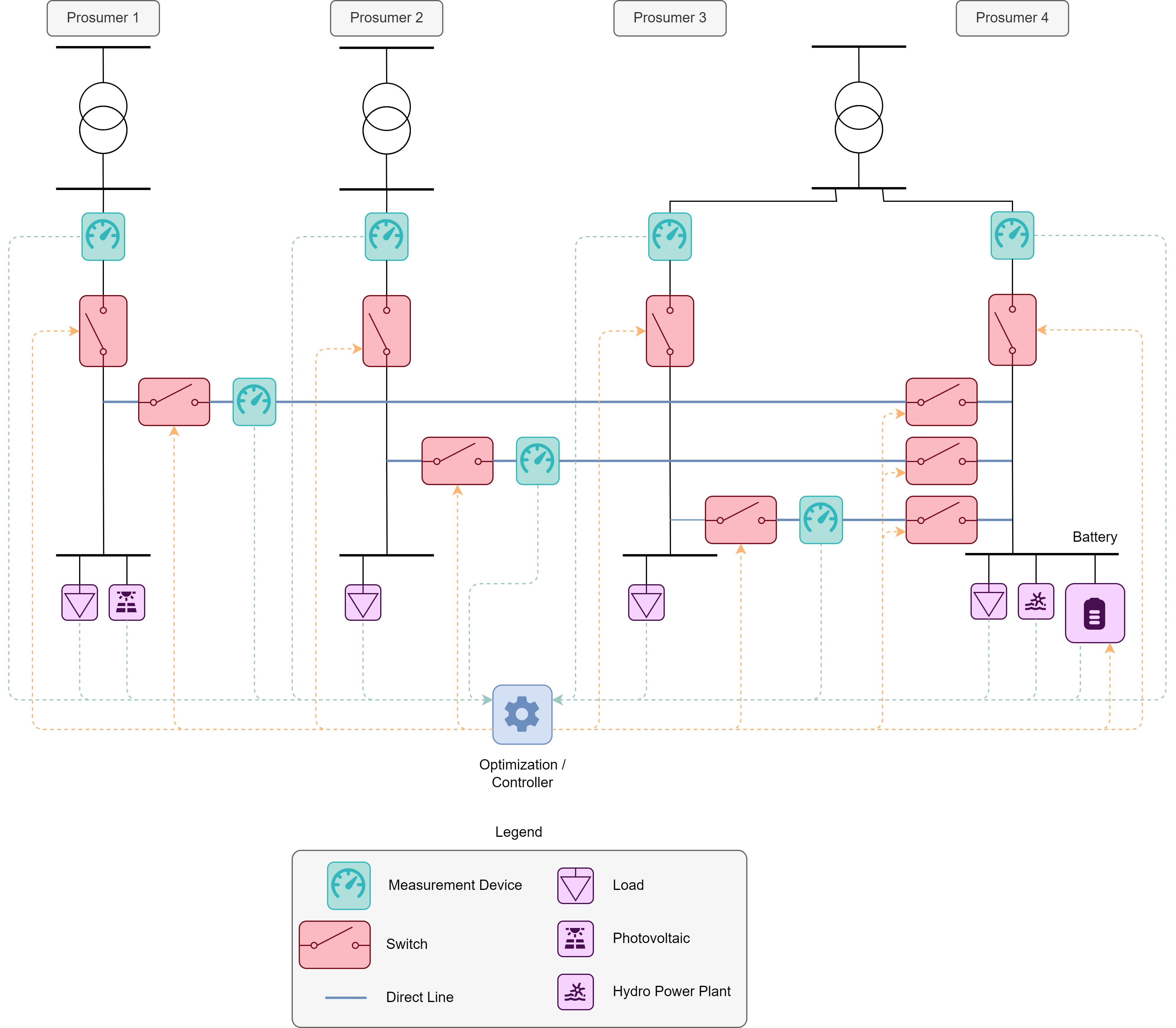Context
The rising share of renewables and decentralised energy supply comes with new challenges. These challenges affect the entire electricity supply chain with:
- Higher strains on the transmission grids,
- the power quality in the distribution grids,
- volatility of renewable energy sources (RES) resulting in additional challenges in their participation on energy markets and
- the necessity to optimize the self-consumption of decentralised renewable energy sources.
Project Approach and Solution
To overcome these challenges, the focus is increasingly shifting to flexibility, specifically to battery energy storage systems (BESS). However, BESS are very cost-intensive, so an optimized usage of the existing storage is a necessity for BESS to be economically feasible, i.e. if several areas of application are served.
FeldBatt System
AIT worked with the town of Feldbach to test the economic feasibility of a battery storage system within given constraints.
Project FeldBatt deals with the planning, construction, and operation of a star-shaped direct line system in combination with a battery storage system (FeldBatt system) for the direct supply of prosumers (producers and consumers) with renewable energy from local photovoltaic and hydropower plants. By means of a rolling optimization and an additional controller, the use of the operation of the system is planned and the devices are controlled. The AIT Rapid Deployment Platform is responsible for the correct operation of the optimiser and controller in the test and field setup, which includes: (1) provision of measurements, (2) periodical load and generation forecasting, 3) triggering of the optimiser and controller, (3) sending the setpoints for the BESS and the direct lines, (4) visualization, monitoring and alerting and (5) deployment of the Software.
Methodology and Results
The project FeldBatt focused on the following goals:
- Increasing own consumption of local renewable generation up to 100 %.
- Reducing electricity costs for the involved prosumers of at least 10 %.
- Ensuring economic feasibility of the BESS by providing additional services with the storage.
- Ensuring the supply of critical infrastructure by using the storage capacity, direct lines and local RES for 1 – 3 days.
- Developing control algorithms for the optimisation of the storage deployment with regards to the different services provided.
- Installing a demonstrator to test the developed business models and control algorithms under real-life conditions.
The innovative aspects of the project can be described as follows: (1) The project centres around the development of a multi-modal deployment strategy with respect to the use of local RES and by connection a BESS with prosumers via direct lines. (2) The involved prosumers will reach an own consumption rating of 100 % from the local photovoltaic and hydro power plants. (3) Direct lines will be used to minimise the costs. (4) The concept takes into account the possibility of a blackout, reserving the necessary capacity to provide energy during such a scenario.




